As many of you may be aware, Ecuador recently endured a 12-day strike. What had occurred was the president and our legislative body had passed an economic reform package that included removing fuel subsidies that had been in place since the 80’s. The removal of these subsidies caused a sudden and drastic increase in the price of gasoline and diesel fuel; in some cases, it actually more than doubled. You can imagine the shock to the system that would cause if something like this occurred in the U.S. or Canada but for many people who barely make enough to pay the bills every month here in Ecuador, this was an incredibly difficult change to endure. And what was even more difficult than this change in the price of gasoline was the fact that in making this sudden change, it meant that cost of many every day goods like fresh produce and other basic consumables would rise as well. Bus fares would also need to go up to accomodate the additional fuel expenses. These kinds of changes drastically affect the every day Joe and Jill (or maybe it is better to say Jose and Maria!) in Ecuador as they are people who go month-by-month providing for their family from the income they recieve that month and there isn’t much wiggle room in that budget. This is why people immediately reacted and started to protest this econimic reform.
You can read a good, thorough summary of the protests here: Ecuador Protests
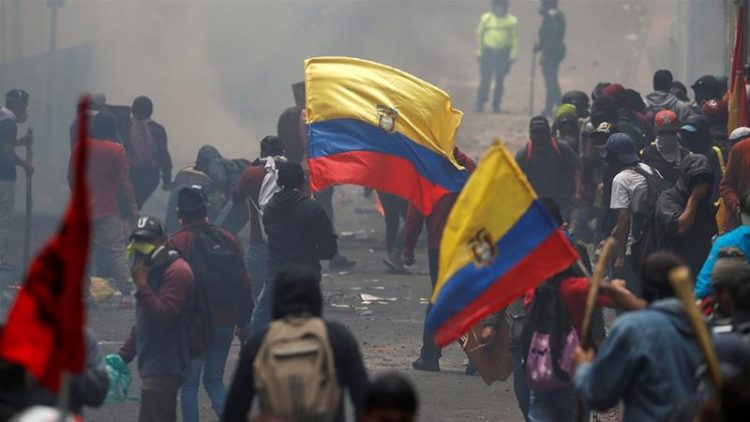

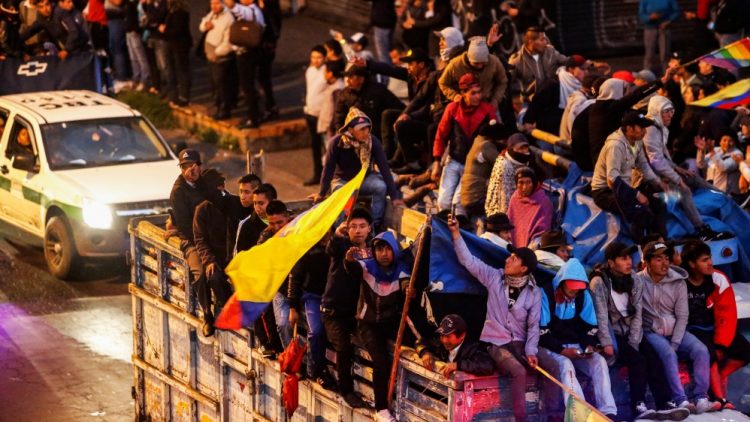
One neat thing that occurred during these protests was that some of our staff from our project in Cayambe came to help during this time of crisis. Read about it here: Protest Caravan
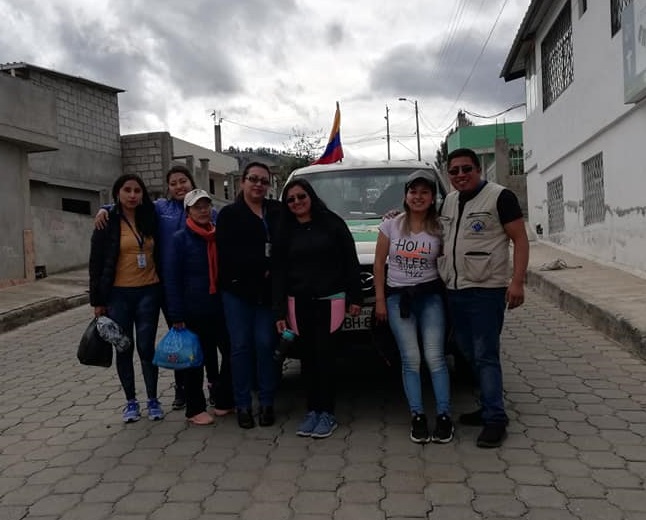
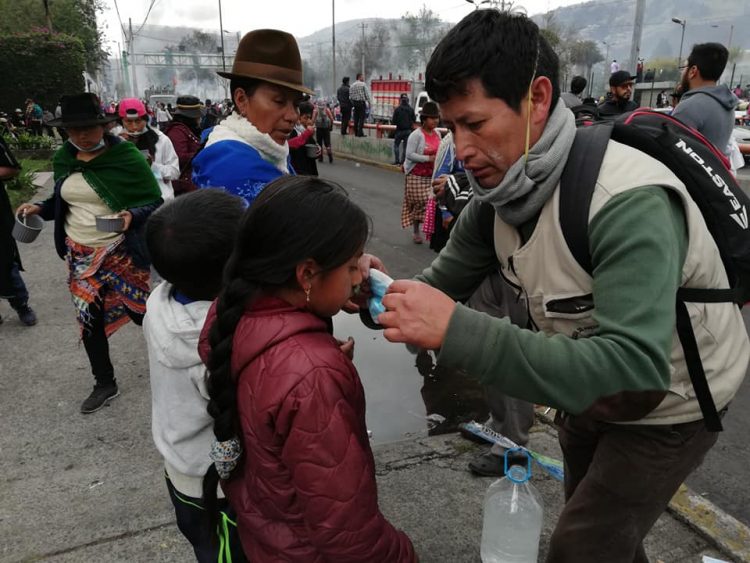
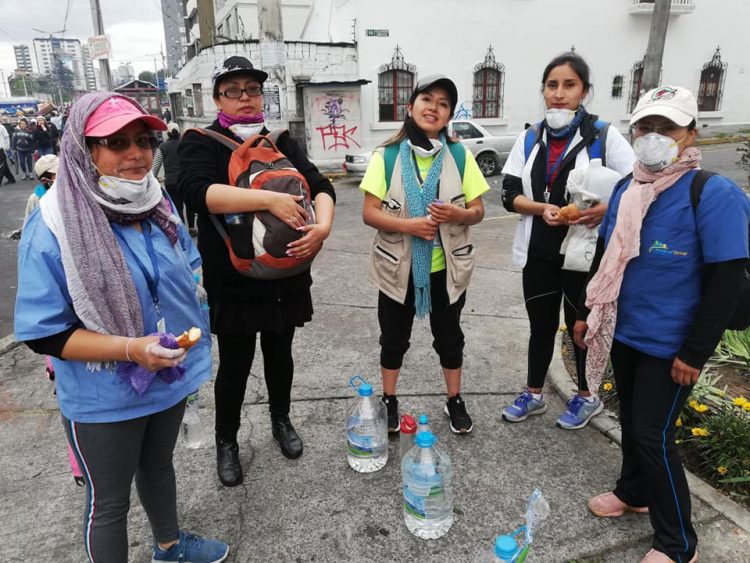
For our family, this was a pretty nerve-racking time. We have counted and we knew that this was the 4th protest that we have been through here in Ecuador. However, this was the longest and the scariest for us. A lot of our time was spent indoors as we were asked to stay in our homes by our bosses in Chicago and for the most part our neighborhood was relatively quiet. But as the 12-day strike continued on, the shelves in the supermarkets slowly became bare as the roads were blocked and more products couldn’t make it. We kept learning of more and more road blockages; for example, the road to the airport was blocked at various times. Finally, our stress level hit an all-time high when the potable water service in our neighborhood was cut off and there were threats that the electricity would be next. Thankfully, soon after that, the protests ended peacefully with the president deciding to rescind the economic package, thus reinstating the fuel subsidies.
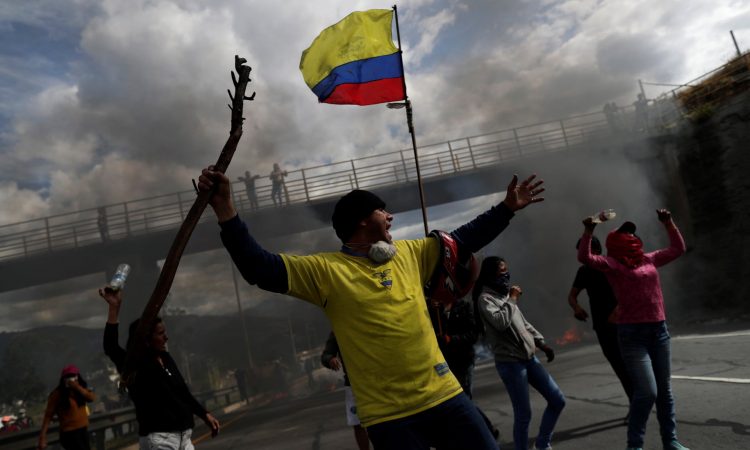
We were thankful to have the protests be over and life quickly return to normal but even more than a sense of relief that we felt from the fact that it was over was the strong sense of pride that we felt. Why pride you ask? Well, if you aren’t aware, this protest was led by the nation’s indigenous. You also may not be aware that our project’s leader, Rolando Escola, is Kichwa, the nation’s largest indigenous group. Also, we have three other staff members who are also Kichwa. Additionally, we serve a lot Kichwa through our project, especially through our Medical Caravans who go up into the mountainous communities to serve the indigenous where they live with very little access to medicine. We have come to know and love our Kichwa brothers and sisters. We have also come to have a lot of respect for them and their incredible work ethic, their strong sense of community, their humble demeanor, their devotion to maintaining their culture and their love of the land and the country of Ecuador. We respected our indigenous friends before the protest but now it is safe to that our respect has even multiplied. These strong yet humble, impoverished people unified as one group (there are over 20 different indigenous groups throughout the country) to lead the protest that they said was for the entire nation against a repressive government. The removal of these fuel subsidies would not affect the rich very much but would greatly alter the lives of the poor and the working class. Our indigenous friends stood up against the government and won a battle for the people of Ecuador. I (Joel) will never forget watching on TV the meeting that occurred between indigenous leadership and the president and other government officials where the truce was agreed upon. The indigenous were strong and straight forward; they would only accept a removal of the economic package and reinstating of the fuel subsidies. The president agreed. I have never seen anything like it and may never see anything like it again. Kim and my pride for the indigenous overflowed when the negotiations were concluded with the first woman who was given the opportunity to speak: a beautiful and articulate indigenous woman leader from the Amazon.
We will let you see for yourself:
https://www.youtube.com/watch?v=DbISHnMP9Lc

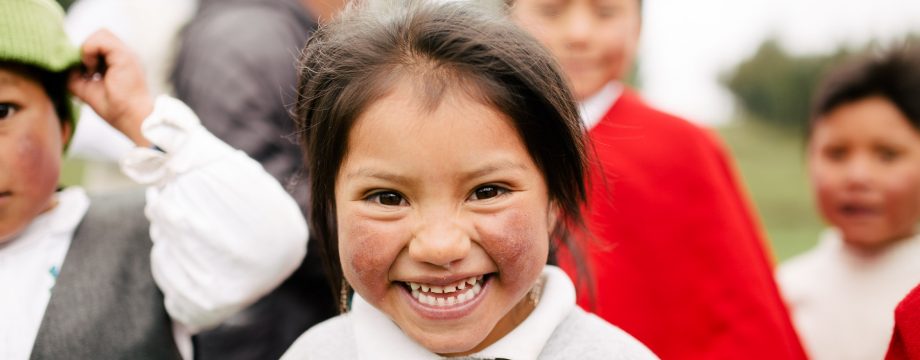
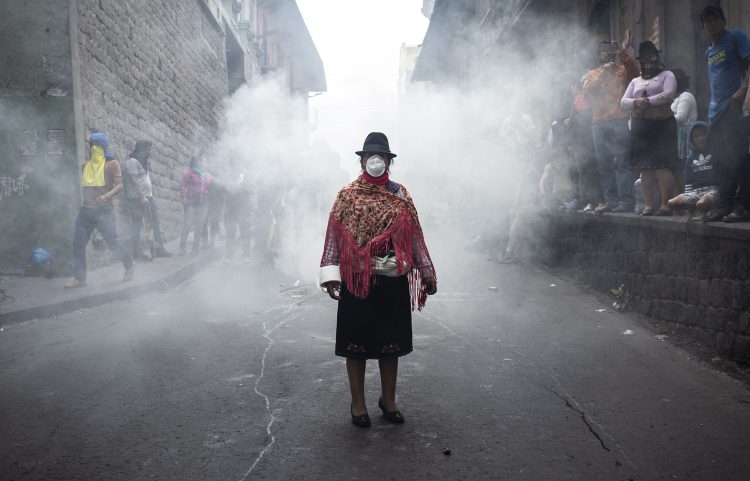

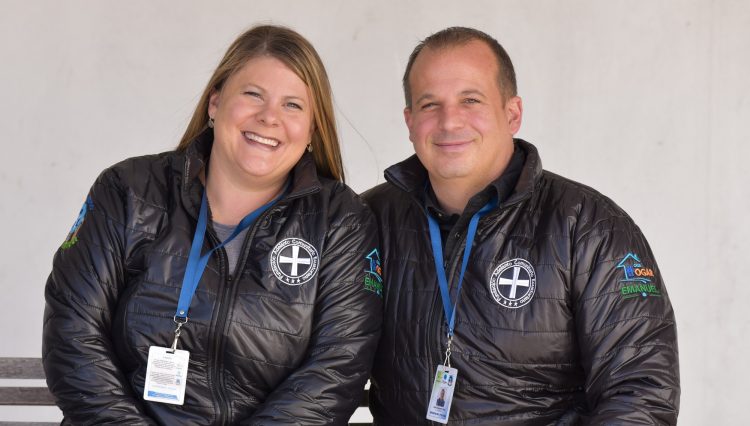
 The Santiago Partnership
The Santiago Partnership